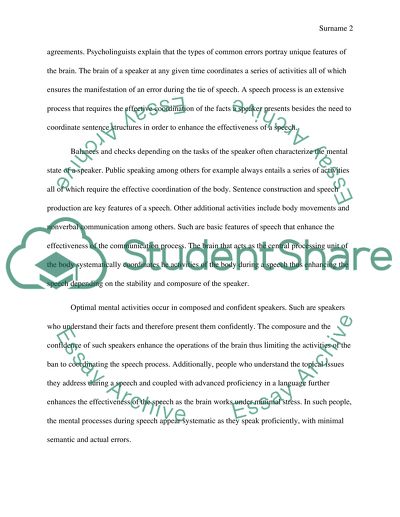Cite this document
(“Speech errors Essay Example | Topics and Well Written Essays - 2000 words”, n.d.)
Retrieved from https://studentshare.org/humanitarian/1661925-speech-errors
Retrieved from https://studentshare.org/humanitarian/1661925-speech-errors
(Speech Errors Essay Example | Topics and Well Written Essays - 2000 Words)
https://studentshare.org/humanitarian/1661925-speech-errors.
https://studentshare.org/humanitarian/1661925-speech-errors.
“Speech Errors Essay Example | Topics and Well Written Essays - 2000 Words”, n.d. https://studentshare.org/humanitarian/1661925-speech-errors.


